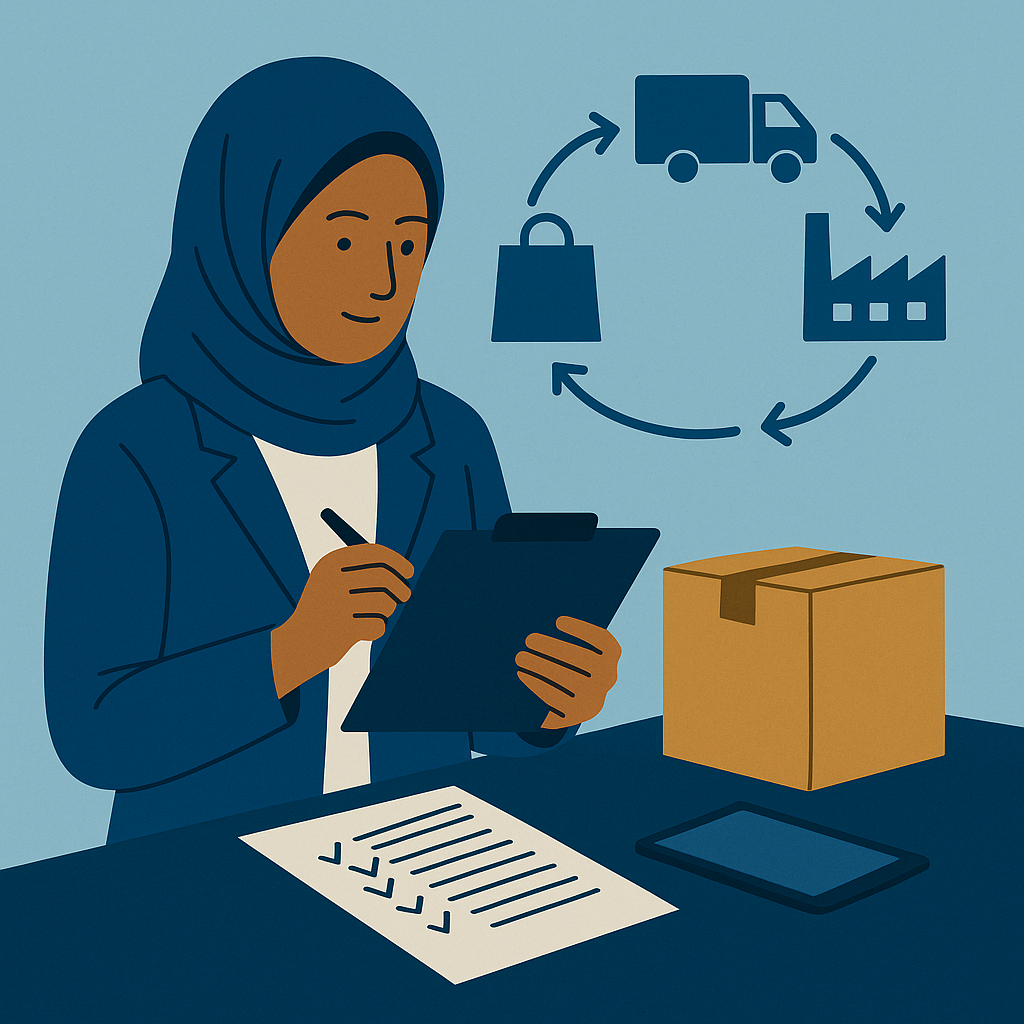Cookie policy
This website academy.terra-institute.eu uses Cookies and similar technologies in order to distinguish you from other users. By using Cookies, We are able to provide you with a better experience and to improve Our Site by better understanding how you use it. Please read this Cookie Policy carefully and ensure that you understand it. Your acceptance of Our Cookie Policy is deemed to occur when you press the “accept” button on Our Cookie banner or when you have selected your preferred Cookie options in Our Cookie manager and pressed the “Continue” button. If you do not agree to Our Cookie Policy, please stop using Our Site immediately.
1. Definitions and Interpretation
In this Cookie Policy, unless the context otherwise requires, the following expressions have the following meanings:
Cookie: means a small file placed on your computer or device by Our Site when you visit certain parts of Our Site and/or when you use certain features of Our Site;
Cookie Law: means the relevant parts of the Privacy and Electronic Communications (EC Directive) Regulations 2003 and of EU Regulation 2016/679 General Data Protection Regulation (“GDPR”);
Personal data: means any and all data that relates to an identifiable person who can be directly or indirectly identified from that data, as defined by EU Regulation 2016/679 General Data Protection Regulation (“GDPR”); and
We/Us/Our: means “Our Website/School/Company”, the brand owned and operated by Company name or Person.
2. Information About Us
Our Site is owned and operated by Company name or person(s).
- Registered address:
- Email address: your email
- Telephone number: your phone
3. How Does Our Site Use Cookies?
- 3.1 Our Site may place and access certain first-party Cookies on your computer or device. First party Cookies are those placed directly by Us and are used only by Us. We use Cookies to facilitate and improve your experience of Our Site and services. We have carefully chosen these Cookies and have taken steps to ensure that your privacy and personal data is protected and respected at all times.
- 3.2 By using Our Site, you may also receive certain third-party Cookies on your computer or device. Third-party Cookies are those placed by websites, services, and/or parties other than Us. Third-party Cookies are used on Our Site for analytics and for marketing purposes. For more details, please refer to section 4 below.
- 3.3 All Cookies used by and on Our Site are used in accordance with current Cookie Law. We may use some or all of the following types of Cookie:
-
3.3.1 Strictly Necessary Cookies
A Cookie falls into this category (usually first-party cookies) if it is essential to the operation of Our Site as without them we cannot provide the functionality that you need to use this website. For example, essential cookies help remember your preferences as you navigate through the online school, also support functions such as logging in, and payment transactions. -
3.3.2 Functionality Cookies
Functional Cookies allow our web site to remember choices you make, e.g. your user name, log in details and language preferences and any customizations you make to pages during your visit. They are necessary to provide features and services specific to individual users. -
3.3.3 Analytics Cookies
It is important for Us to understand how you use Our Site, for example, how efficiently you are able to navigate around it, and what features you use. Analytics Cookies enable us to gather this information, helping Us to improve Our Site and your experience of it. -
3.3.4 Marketing/Targeting Cookies
It is important for Us to know when and how often you visit Our Site, and which parts of it you have used (including which pages you have visited and which links you have visited). As with analytics Cookies, this information helps us to better understand you and, in turn, to make Our Site and advertising more relevant to your interests. Some information gathered by targeting Cookies may also be shared with third parties. -
3.3.5 Third Party Cookies
Third-party Cookies are not placed by Us; instead, they are placed by third parties that provide services to Us and/or to you. Third-party Cookies may be used by advertising services to serve up tailored advertising to you on Our Site, or by third parties providing analytics services to Us (these Cookies will work in the same way as analytics Cookies described above). -
3.3.6 Persistent Cookies
Any of the above types of Cookie may be a persistent Cookie. Persistent Cookies are those which remain on your computer or device for a predetermined period and are activated each time you visit Our Site. -
3.3.7 Session Cookies
Any of the above types of Cookie may be a session Cookie. Session Cookies are temporary and only remain on your computer or device from the point at which you visit Our Site until you close your browser. Session Cookies are deleted when you close your browser.
- 3.4 Cookies on Our Site are not permanent and will expire as indicated in the table below.
- 3.5 For more details of the personal data that We collect and use, the measures we have in place to protect personal data, your legal rights, and our legal obligations, please refer to our Privacy Policy
- 3.6 For more specific details of the Cookies that We use, please refer to the table below.
4. What Cookies Does Our Site Use?
- 4.1 The following first-party Cookies may be placed on your computer or device:
| Name of Cookie | Purpose | Strictly Necessary | Expires |
| XSRF-TOKEN | Preserves User Login information and states | Yes | When you close your browser |
| DPSettings | Preserves the user's Cookie policy preferences | Yes | 12 days |
| slim_session | Preserves User Login information and states | Yes | 1 day |
- 4.2 The following strictly necessary third-party Cookies may be placed on your computer or device (remove stripe cookies from the list if you don’t use stripe):
| Name of Cookie | Provider | Purpose | Expires |
| nsr | m.stripe.network | Used to process payments for our website. | When you close your browser |
| cookiesEnabled | checkout.stripe.com | Used to process payments for our website. | When you close your browser |
| __stripe_sid | checkout.stripe.com | Used to process payments for our website. | When you close your browser |
| __stripe_mid | checkout.stripe.com | Used to distinguish users. | 1 year |
| ab_disable_remember_ | checkout.stripe.com | Used to process payments for our website. | 7 years |
| checkout-test-session | checkout.stripe.com | Used to process payments for our website. | 10 years |
| cid | checkout.stripe.com | Used to process payments for our website. | for ever |
| vuid | vimeo.com | These cookies are used by Vimeo to collect analytics tracking information. | 1 year |
| player | player.vimeo.com | These cookies are used by Vimeo to collect analytics tracking information. | 1 year |
- 4.3 Our Site uses the following functional Cookies (remove cookies not exploited in your school):
Olark
| Name of Cookie | Provider | Purpose | Expires |
| hblid | academy.terra-institute.eu | a visitor identifier that we use only on your site to remember this visitor between visits | 2 years |
| wcsid | academy.terra-institute.eu | a session identifier that we use only on your site to keep track of a single chat session | When you close your browser |
| olfsk | academy.terra-institute.eu | storage identifier that we use to maintain chat state across pages (e.g. message history) | 2 years |
| _okbk | academy.terra-institute.eu | extra state information (e.g. chat box being open/closed) | When you close your browser |
| _ok | academy.terra-institute.eu | most recent Olark site ID (security measure) | When you close your browser |
| _oklv | academy.terra-institute.eu | the Olark loader version (for improved caching) | When you close your browser |
| _okla | academy.terra-institute.eu | used for caching purposes (loaded from CDN vs. loaded from our infrastructure) | When you close your browser |
| _okgid | academy.terra-institute.eu | used for caching by setting a hash for assets to determine if they have changed and if they need to be refreshed | When you close your browser |
| _okac | academy.terra-institute.eu | used for caching by setting a hash for assets to determine if they have changed and if they need to be refreshed | When you close your browser |
TawkTo
| Name of Cookie | Provider | Purpose | Expires |
| TawkConnectionTime | academy.terra-institute.eu | previous registration time stamp | When you close your browser |
| Tawk_ | academy.terra-institute.eu | socket connection url | When you close your browser |
| __tawkuuid | academy.terra-institute.eu | domain restriction values | 6 months |
| __cfduid | tawk.to | Used by the content network, Cloudflare, to identify trusted web traffic. | 1 year |
Freshchat
| Name of Cookie | Provider | Purpose | Expires |
| pubsub_cookie | academy.terra-institute.eu | This cookie is used for the freshchat service | When you close your browser |
| hop- | academy.terra-institute.eu | This cookie is used for the freshchat service | When you close your browser |
| academy.terra-institute.eu | This cookie is used for the freshchat service | When you close your browser | |
| _ | academy.terra-institute.eu | This cookie is used for the freshchat service | 1 year |
| pnctest | academy.terra-institute.eu | This cookie is used for the freshchat service | 1 year |
Zendesk Web Widget
| Name of Cookie | Provider | Purpose | Expires |
| ZD-referrerPolicy | academy.terra-institute.eu | Stores referrer tags | Forever |
| ZD-zE_oauth | academy.terra-institute.eu | Stores the authentication token once the user has been authenticated. | 2 hours |
| ZD-currentTime | academy.terra-institute.eu | Sets the time when page loads. | Forever |
| ZD-settings | academy.terra-institute.eu | Stores a hash of settings so that we don't keep sending blips after the initial one | Forever |
| ZD-suid | academy.terra-institute.eu | Session id for pathfinder. | 20 minutes |
| ZD-buid | academy.terra-institute.eu | Collects Machine ID. | Forever |
Intercom
| Name of Cookie | Provider | Purpose | Expires |
| intercom-id- | academy.terra-institute.eu | This cookie is used by Intercom as a session so that users can continue a chat as they move through the site. | 9 months |
- 4.4 Our Site uses analytics services provided by your analytics services, if any. Website analytics refers to a set of tools used to collect and analyse anonymous usage information, enabling us to better understand how Our Site is used. This, in turn, enables us to improve Our Site and the products and services offered through them.
- 4.5 The analytics services used by Our Site use Cookies to gather the required information. You do not have to allow us to use these Cookies, however, whilst our use of them does not pose any risk to your privacy or your safe use of Our Site, it does enable us to continually improve Our Site, making it a better and more useful experience for you.
- 4.6 The analytics services used by Our Site uses the following Cookies (remove cookies not exploited in your school):
Google Analytics
| Name of Cookie | Provider | Purpose | Expires |
| _ga | academy.terra-institute.eu | Google Analytics: Registers a unique ID that is used to generate statistical data on how the visitor uses the website. | 2 years |
| _gat | academy.terra-institute.eu | Google Analytics: Used by Google Analytics to throttle the request rate. | When you close your browser |
| _gid | academy.terra-institute.eu | Google Analytics: Registers a unique ID that is used to generate statistical data on how the visitor uses the website. | When you close your browser |
| collect | academy.terra-institute.eu | Google Analytics: Used to send data to Google Analytics about the visitor's device and behaviour. Tracks the visitor across devices and marketing channels. | When you close your browser |
Mixpanel
| Name of Cookie | Provider | Purpose | Expires |
| mp_#_mixpanel | academy.terra-institute.eu | MixPanel: Cookie used by MixPanel for analytics purposes | 1 year |
Sumo me
| Name of Cookie | Provider | Purpose | Expires |
| __smToken | academy.terra-institute.eu | The __smToken is set once you login to Sumo and is checked to verify whether you are logged into Sumo or not. | 1 year |
| __smSmartbarShown | academy.terra-institute.eu | Is set when the Smartbar is shown | 50 years |
| __smVID | academy.terra-institute.eu | Used to display relevant advertising | 1 month |
| __smSessionId | academy.terra-institute.eu | Used by Sumo to establish a cookie on a users computer to begin a session to enable Sumo products | When you close your browser |
-
4.7 Targeting/Marketing cookies
Targeting/Marketing cookies are used to track visitors across websites. They may be used by those companies to build a profile of your interests and show you relevant adverts on other sites. They do not store directly personal information but are based on uniquely identifying your browser and internet device. The intention is to display ads that are relevant and engaging for the individual user and thereby more valuable for publishers and third-party advertisers. If you do not allow these cookies, you will experience less targeted advertising (remove cookies not exploited in your school):
| Name of Cookie | Provider | Purpose | Expires |
| fr | facebook.com | Used by Facebook to deliver a series of advertisement products such as real time bidding from third-party advertisers | 3 months |
| fr | facebook.com | Used by Facebook to deliver a series of advertisement products such as real time bidding from third-party advertisers | When you close your browser |
Hubspot
| Name of Cookie | Provider | Purpose | Expires |
| __hstc | academy.terra-institute.eu | The main cookie for tracking visitors. It contains the domain, utk (see below), initial timestamp (first visit), last timestamp (last visit), current timestamp (this visit), and session number (increments for each subsequent session). | 2 years |
| hubspotutk | academy.terra-institute.eu | This cookie is used for to keep track of a visitor's identity. This cookie is passed to HubSpot on form submission and used when de-duplicating contacts. | 10 years |
| __hssc | academy.terra-institute.eu | This cookie keeps track of sessions. This is used to determine if we should increment the session number and timestamps in the __hstc cookie. It contains the domain, viewCount (increments each pageView in a session), and session start timestamp. | 30 min |
| __hssrc | academy.terra-institute.eu | Whenever HubSpot changes the session cookie, this cookie is also set. We set it to 1 and use it to determine if the visitor has restarted their browser. If this cookie does not exist when we manage cookies, we assume it is a new session. | session |
| messagesUtk | academy.terra-institute.eu | This cookie is used to recognize visitors who chat with you via the messages tool. If the visitor leaves your site before they're added as a contact, they will have this cookie associated with their browser. If you have a history of chatting with a visitor and they return to your site later in the same cookied browser, the messages tool will load your conversation history with that visitor. | session |
Refersion
| Name of Cookie | Provider | Purpose | Expires |
| ci_session | refersion.com | Preserves users states across page requests. | When you close your browser |
| refersion_csrf_code | refersion.com | Sets csrf token to prevent cross site request forgery. | When you close your browser |
| __cfduid | refersion.com | Used by the content network, Cloudflare, to identify trusted web traffic. | 1 year |
Google AdWords
| Name of Cookie | Provider | Purpose | Expires |
| ads/ga-audiences | academy.terra-institute.eu | Used by Google AdWords to re-engage visitors that are likely to convert to customers based on the visitor's online behaviour across websites. | When you close your browser |
Fomo
| Name of Cookie | Provider | Purpose | Expires |
| Fomo.hstry-count-since-first-event- | academy.terra-institute.eu | Used by Fomo for showing user notifications. | Persistent |
| Fomo.hstry-first-timestamp- | academy.terra-institute.eu | Used by Fomo for showing user notifications | Persistent |
| Fomo.snv- | academy.terra-institute.eu | Used by Fomo for showing user notifications | Persistent |
5. Consent and Control
(Keep section 5.1 and 5.2 if you are using our cookie opt-in mechanism from School Privacy settings.)
- 5.1 Before Cookies are placed on your computer or device, you will be shown a banner requesting your consent to set those Cookies. By giving your consent to the placing of Cookies you are enabling Us to provide the best possible experience and service to you. You may, if you wish, deny consent to the placing of Cookies unless those Cookies are strictly necessary; however certain features of Our Site may not function fully or as intended. You will be given the opportunity to allow and/or deny different categories of Cookie that We use.
- 5.2 In addition to the controls that We provide, you can choose to enable or disable Cookies in your internet browser. Most internet browsers also enable you to choose whether you wish to disable all Cookies or only third-party Cookies. By default, most internet browsers accept Cookies but this can be changed. For further details, please consult the help menu in your internet browser or the documentation that came with your device.
- 5.3 The links below provide instructions on how to control Cookies in all mainstream browsers:
- 5.3.1 Google Chrome
- 5.3.2 Microsoft Internet Explorer
- 5.3.3 Microsoft Edge (Please note that there are no specific instructions at this time, but Microsoft support will be able to assist)
- 5.3.4 Safari (macOS)
- 5.3.5 Safari (iOS)
- 5.3.6 Mozilla Firefox
- 5.3.7 Android (Please refer to your device’s documentation for manufacturers’ own browsers)
6. Changes to this Cookie Policy
- 6.1 We may alter this Cookie Policy at any time. Any such changes will become binding on you on your first use of Our Site after the changes have been made. You are therefore advised to check this page from time to time.
- 6.2 In the event of any conflict between the current version of this Cookie Policy and any previous version(s), the provisions current and in effect shall prevail unless it is expressly stated otherwise.
7. Further Information
- 7.1 If you would like to know more about how We use Cookies, please contact Us at academy@terra-institute.eu.
- 7.2 For more information about privacy, data protection and our terms and conditions, please visit the following:
- 7.2.1 Privacy Policy
- 7.2.1 Terms & Conditions

-
Albuingasse 2, 39042 Brixen (BZ), Italien
-
academy@terra-institute.eu
-
+39 0472 970 484
United Nations Regional Centre of Expertise on Education for Sustainable Development
Catering

In der Küche wird entschieden, wie regional, saisonal und ressourcenschonend ein Hotel tatsächlich wirtschaftet.
Größte Herausforderungen:
- Hohe Lebensmittelverschwendung (Reste, Überproduktion)
- Energie- und Wasserverbrauch (z. B. Spülmaschinen, Kühlkette)
- Einkauf nicht nachhaltig (z. B. konventionelle Lieferketten, hoher Fleischanteil)
- Mangelnde CO₂-Transparenz bei Speisen
- Hoher Verpackungsverbrauch
Typische Wissenslücken:
- Wie lässt sich die Lebensmittelverschwendung messbar senken?
- Was bedeutet „nachhaltiger Einkauf“ in der Praxis?
- Wie kann ich die Kühlkette energieeffizient betreiben
- Bio, regional, konventionell; frisch oder aus der Dose – Welche Produkte haben eine besonders gute Klimabilanz, und in welcher Saison?
- Was bedeutet Kreislaufwirtschaft in der Küche?
- Wie funktioniert gutes Abfallmanagement in der Küche?
Wenn Sie sich über einen Lernpfad für Ihre Zielgruppe informieren möchten, verwenden Sie bitte das unten stehende Kontaktformular, um mit einer:m unserer Expert:innen zu sprechen.
Rezeption

Die Rezeption ist oft der erste Berührungspunkt für
Gäste – hier entscheidet sich, ob Nachhaltigkeit glaubwürdig gelebt und
kommuniziert wird.
Größte Herausforderungen:
- Papierverbrauch durch Formulare und Informationen
- Fehlende Einbindung in nachhaltige Gästeinformation
- Unzureichende Hinweise auf nachhaltige Mobilität oder Angebote
- Intransparente Prozesse im Check-in/Check-out
Typische Wissenslücken:
- Wie kommuniziere ich Nachhaltigkeit glaubwürdig gegenüber Gästen?
- Welche digitalen Tools helfen beim ressourcenschonenden Empfang?
- Was muss ich zu Zertifizierungen und Labels wissen?
Wenn Sie sich über einen Lernpfad für Ihre Zielgruppe informieren möchten, verwenden Sie bitte das unten stehende Kontaktformular, um mit einer:m unserer Expert:innen zu sprechen.
Reinigung

Im Housekeeping treffen tägliche Routinen auf große ökologische Hebel – doch oft fehlen nachhaltige Alternativen und klare Vorgaben.
Größte Herausforderungen:
- Wasser- und Energieverbrauch beim Waschen
- Einsatz konventioneller Reinigungsmittel
- Hoher Textilverschleiß durch unnötige Wechsel
- Mülltrennung in den Zimmern schwer umsetzbar
Typische Wissenslücken:
- Welche Reinigungsmittel sind umweltfreundlich und wirksam – und in welcher Dosierung?
- Wie funktioniert nachhaltiges Wäschemanagement?
- Was kann ich Gästen anbieten, damit sie freiwillig auf tägliche Reinigung verzichten?
Wenn Sie sich über einen Lernpfad für Ihre Zielgruppe informieren möchten, verwenden Sie bitte das unten stehende Kontaktformular, um mit einer:m unserer Expert:innen zu sprechen.
Service

Servicekräfte sind Botschafter:innen nachhaltiger Küche – doch ohne fundiertes Wissen bleibt viel Potenzial ungenutzt.
Größte Herausforderungen:
- Portionierung und hohe Lebensmittelverschwendung
- Mangelnde Informationen über Zutaten und Unverträglichkeiten
- Einwegverpackungen & Take-away ohne Nachhaltigkeitskonzept
Typische Wissenslücken:
- Wie spreche ich mit Gästen über nachhaltige Speisenangebote?
- Was bedeutet "klimafreundlich essen"?
- Wie gehe ich mit Sonderwünschen und Unverträglichkeiten ressourcenschonend um?
Wenn Sie sich über einen Lernpfad für Ihre Zielgruppe informieren möchten, verwenden Sie bitte das unten stehende Kontaktformular, um mit einer:m unserer Expert:innen zu sprechen.
Haustechnik

Die Technikabteilung ist der Schlüssel zu Energieeffizienz und Ressourcenschonung – wenn sie frühzeitig eingebunden wird.
Größte Herausforderungen:
- Veraltete Anlagen (Heizung, Lüftung, Licht)
- Fehlendes Monitoring der Verbräuche
- Komplexe Umstellung auf erneuerbare Energie
Typische Wissenslücken:
- Wie identifiziere ich Einsparpotenziale im Gebäude?
- Was ist bei der Planung energieeffizienter Systeme zu beachten?
- Was umfasst Barrierefreiheit?
- Wie funktioniert ESG-Datenerfassung technisch?
Wenn Sie sich über einen Lernpfad für Ihre Zielgruppe informieren möchten, verwenden Sie bitte das unten stehende Kontaktformular, um mit einer:m unserer Expert:innen zu sprechen.
Management

Nachhaltigkeit braucht strategische Verankerung – und das klare Commitment von "oben".
Größte Herausforderungen:
- Keine klare Nachhaltigkeitsstrategie
- Investitionen in Nachhaltigkeit erscheinen teuer
- Fehlende Messbarkeit & Wirkungstransparenz
Typische Wissenslücken:
- Welche ESG-Anforderungen gelten für mein Haus?
- Wie kann ich Nachhaltigkeit in Unternehmensziele integrieren?
- Welche Förderungen und Zertifikate gibt es?
- Welche Chancen ergeben sich aus Nachhaltigkeit?
Wenn Sie sich über einen Lernpfad für Ihre Zielgruppe informieren möchten, verwenden Sie bitte das unten stehende Kontaktformular, um mit einer:m unserer Expert:innen zu sprechen.
Human Resources

Wer Nachhaltigkeit im Unternehmen verankern will, muss die Menschen mitnehmen – durch Schulung, Werte und Vorbilder.
Größte Herausforderungen:
- Keine systematische Schulung der Mitarbeitenden
- Geringes Bewusstsein für Nachhaltigkeit in der Belegschaft
- Fehlende Integration in Recruiting und Onboarding
Typische Wissenslücken:
- Wie motiviere ich Mitarbeitende zu nachhaltigem Handeln?
- Wie verankere ich Nachhaltigkeit in der Unternehmenskultur?
- Welche Kompetenzen brauchen Mitarbeitende in Zukunft?
- Wie setze ich Diversität, Gleichberechtigung und Inklusion richtig um?
Wenn Sie sich über einen Lernpfad für Ihre Zielgruppe informieren möchten, verwenden Sie bitte das unten stehende Kontaktformular, um mit einer:m unserer Expert:innen zu sprechen.
Vertrieb & Marketing

Nachhaltigkeit wird zunehmend kaufentscheidend – doch nur wer glaubwürdig und faktenbasiert kommuniziert, überzeugt.
Größte Herausforderungen:
- Gefahr von Greenwashing
- Fehlende Kennzahlen und Belege
- Unklarer Nutzen von Zertifizierungen
Typische Wissenslücken:
- Was darf ich rechtlich über Nachhaltigkeit kommunizieren – was lieber nicht?
- Wie setze ich unsere Maßnahmen verkaufsfördernd in Szene?
- Welche Erwartungen haben nachhaltigkeitsbewusste Kund:innen?
Wenn Sie sich über einen Lernpfad für Ihre Zielgruppe informieren möchten, verwenden Sie bitte das unten stehende Kontaktformular, um mit einer:m unserer Expert:innen zu sprechen.
Einkauf

Nachhaltigkeit beginnt im Einkauf – doch soziale und ökologische Kriterien finden noch zu selten Beachtung.
Größte Herausforderungen:
- Einkauf nach Preis statt Auswirkung (Impact – Umwelt und Menschenrechte)
- Keine Informationen über Lieferketten
- Hoher Verpackungsanteil bei Waren
Typische Wissenslücken:
- Welche Nachhaltigkeitskriterien kann ich im Einkauf anwenden?
- Wie bewerte ich Lieferanten?
- Welche nachhaltigen Alternativen gibt es konkret?
Wenn Sie sich über einen Lernpfad für Ihre Zielgruppe informieren möchten, verwenden Sie bitte das unten stehende Kontaktformular, um mit einer:m unserer Expert:innen zu sprechen.
Event-Management

Nachhaltige Veranstaltungen sind gefragt – aber noch zu oft fehlen Know-how, Tools und erprobte Lösungen.
Größte Herausforderungen:
- Abfallmengen & Verpackung bei Events
- Klimabelastung durch Anreise
- Fehlende Nachhaltigkeitsstandards für Veranstaltungen
Typische Wissenslücken:
- Was ist ein „Green Event“ und wie setze ich es um?
- Welche CO₂-Kompensation ist sinnvoll?
- Wie kann ich Kund:innen nachhaltige Lösungen anbieten?
Wenn Sie sich über einen Lernpfad für Ihre Zielgruppe informieren möchten, verwenden Sie bitte das unten stehende Kontaktformular, um mit einer:m unserer Expert:innen zu sprechen.
Wellness

Der Wellnessbereich bietet viele Möglichkeiten für umweltfreundliche Angebote – doch Ressourcenschonung ist oft noch kein Thema.
Größte Herausforderungen:
- Wasser- und Energieverbrauch, Chemikalien (Pools, Saunen)
- Konventionelle Pflegeprodukte mit Mikroplastik
- Einwegartikel wie Slipper oder Verpackungen
Typische Wissenslücken:
- Welche nachhaltigen Alternativen gibt es für Spa-Produkte?
- Wie lassen sich Wellnessangebote ressourcenschonend gestalten?
- Was erwarten umweltbewusste Gäste?
Wenn Sie sich über einen Lernpfad für Ihre Zielgruppe informieren möchten, verwenden Sie bitte das unten stehende Kontaktformular, um mit einer:m unserer Expert:innen zu sprechen.
Ausbildung

Wer Nachhaltigkeit in der DNA des Betriebs verankern will, muss beim Nachwuchs anfangen – praxisnah, verständlich und motivierend.
Größte Herausforderungen:
- Kaum Berührungspunkte mit Nachhaltigkeit in der Ausbildung
- Fehlende Identifikation mit Unternehmenswerten
- Geringes Verständnis für Zusammenhänge
Typische Wissenslücken:
- Was bedeutet Nachhaltigkeit im Hotelalltag konkret?
- Wie kann ich mich aktiv einbringen?
- Welche Chancen bietet Nachhaltigkeit für meine berufliche Zukunft?
Wenn Sie sich über einen Lernpfad für Ihre Zielgruppe informieren möchten, verwenden Sie bitte das unten stehende Kontaktformular, um mit einer:m unserer Expert:innen zu sprechen.
Firmenkunden-Beratung

Firmenkundenberatende sind die Schnittstelle zwischen Bank und Unternehmen – sie spielen eine Schlüsselrolle, wenn es darum geht, nachhaltige Finanzierungen anzubieten und Unternehmen beim Wandel zu begleiten.
Größte Herausforderungen:
- Mangelndes Wissen über ESG-Risiken und -Chancen in unterschiedlichen Branchen
- Unsicherheit bei der Anwendung der EU-Taxonomie in Beratungsgesprächen
- Fehlende Argumentationshilfen für nachhaltige Finanzierungen
- Geringe Erfahrung im Umgang mit CSRD/ESRS-Daten von Kund:innen
- Zunehmende Vorschriften von Seiten der Aufsicht
Typische Wissenslücken:
- Welche ESG-Vorgaben gelten für Firmenkunden?
- Wie erkenne ich nachhaltige Geschäftsmodelle?
- Was bedeutet die EU-Taxonomie für konkrete Kreditentscheidungen?
- Wie berate ich Unternehmen zu CO₂-Reduktion, Kreislaufwirtschaft oder Biodiversität?
Wenn Sie sich über einen Lernpfad für Ihre Zielgruppe informieren möchten, verwenden Sie bitte das unten stehende Kontaktformular, um mit einer:m unserer Expert:innen zu sprechen.
Risiko- und Kreditprüfung

Im Risikomanagement wird entschieden, wie Nachhaltigkeitsrisiken in die Kreditvergabe einfließen. Dazu braucht es Know-how zu regulatorischen Anforderungen und ESG-spezifischer Bewertung.
Größte Herausforderungen:
- Schwierige Einschätzung physischer und transitorischer Risiken
- Fehlende Integration von ESG-Kriterien in bestehende Prüfprozesse
- Mangelnde Bewertungssysteme für neue, nachhaltige Geschäftsmodelle
- Unklare Abgrenzung von Greenwashing vs. echter Transformation
Typische Wissenslücken:
- Wie identifiziere ich klimabezogene Risiken (z. B. nach EBA-Vorgaben)?
- Was sind transitorische Risiken in Hochrisikosektoren?
- Wie lassen sich Nachhaltigkeitsrisiken messbar in Ratings integrieren?
- Welche ESG-Daten sind für die Risikoanalyse relevant?
Wenn Sie sich über einen Lernpfad für Ihre Zielgruppe informieren möchten, verwenden Sie bitte das unten stehende Kontaktformular, um mit einer:m unserer Expert:innen zu sprechen.
Produkt-Entwicklung

Ob Green Bonds, ESG-Fonds oder nachhaltige Sparkonten – Produktverantwortliche müssen regulatorische Anforderungen und Kundenbedürfnisse verbinden.
Größte Herausforderungen:
- Komplexe Taxonomie-Vorgaben bei Finanzprodukten
- Unsicherheit bei der Produktklassifizierung nach SFDR
- Schwierige Kommunikation der Nachhaltigkeitsmerkmale an Kund:innen
- Widersprüchliche Erwartungen zwischen Impact und Rendite
Typische Wissenslücken:
- Welche Kriterien muss ein nachhaltiges Finanzprodukt erfüllen?
- Wie funktioniert SFDR-Kategorisierung (Art. 6, 8, 9)?
- Welche Kundenerwartungen gibt es an ESG-Produkte?
- Wie bewerte ich Impact und Greenwashing-Risiken?
Wenn Sie sich über einen Lernpfad für Ihre Zielgruppe informieren möchten, verwenden Sie bitte das unten stehende Kontaktformular, um mit einer:m unserer Expert:innen zu sprechen.
Marketing & Kommunikation

Nachhaltigkeit wird auch bei Finanzprodukten zum Verkaufsargument – aber nur mit klarer, transparenter Kommunikation lassen sich Vertrauen und Glaubwürdigkeit schaffen.
Größte Herausforderungen:
- Angst vor Greenwashing-Vorwürfen
- Fehlende ESG-Datenbasis für vertrauensvolle Aussagen
- Komplexe regulatorische Anforderungen (Green Claims, SFDR)
- Unklarer Nutzen von Labels und Zertifizierungen
Typische Wissenslücken:
- Was darf ich rechtlich über nachhaltige Produkte kommunizieren – was lieber nicht?
- Wie erkläre ich komplexe ESG-Kriterien einfach und überzeugend?
- Welche Rolle spielen Zertifikate (z. B. FNG-Siegel, EU Ecolabel)?
- Wie kommuniziere ich glaubwürdig über unsere nachhaltige Transformation?
Wenn Sie sich über einen Lernpfad für Ihre Zielgruppe informieren möchten, verwenden Sie bitte das unten stehende Kontaktformular, um mit einer:m unserer Expert:innen zu sprechen.
Personal-Entwicklung

Wer ESG wirklich im Bankalltag verankern will, muss alle Mitarbeitenden schulen – vom Onboarding bis zur Führungsebene.
Größte Herausforderungen:
- Fehlende ESG-Schulungsstruktur für verschiedene Rollen
- Geringes Bewusstsein für Nachhaltigkeit im Tagesgeschäft
- Unsicherheit, welche Inhalte für wen relevant sind
- Unklarheit über Kompetenzen der Zukunft (Future Skills)
Typische Wissenslücken:
- Wie gestalte ich ein wirksames ESG-Schulungskonzept?
- Welche Inhalte brauchen Berater:innen, welche Führungskräfte?
- Wie stärke ich nachhaltige Führung und Kultur?
- Welche ESG-Kompetenzen sind in Zukunft entscheidend?
Wenn Sie sich über einen Lernpfad für Ihre Zielgruppe informieren möchten, verwenden Sie bitte das unten stehende Kontaktformular, um mit einer:m unserer Expert:innen zu sprechen.
ESG-Reporting

Die CSRD bringt Berichtspflicht und Transparenzanforderungen – nicht nur für Firmenkunden, sondern auch für die Banken selbst.
Größte Herausforderungen:
- Komplexität der ESRS-Standards
- Koordination zwischen Datenquellen, Fachabteilungen und IT
- Schwierige Materialitätsanalyse im Finanzkontext
- Fehlende Klarheit bei Scope-3-Emissionen
Typische Wissenslücken:
- Was sind die wichtigsten ESRS-Pflichten für Banken?
- Wie strukturiere ich eine doppelte Wesentlichkeitsanalyse?
- Welche Daten brauche ich für mein ESG-Reporting?
- Was bedeutet EU-Taxonomie-konforme Berichterstattung?
Wenn Sie sich über einen Lernpfad für Ihre Zielgruppe informieren möchten, verwenden Sie bitte das unten stehende Kontaktformular, um mit einer:m unserer Expert:innen zu sprechen.
Management

Nachhaltigkeit ist kein Trend, sondern strategische Notwendigkeit – das Top-Management muss Rahmenbedingungen, Ziele und Ressourcen klären.
Größte Herausforderungen:
- ESG als Zusatz statt integrierter Bestandteil der Geschäftsstrategie
- Unklare Verantwortlichkeiten und Umsetzungspfade
- Investitionsentscheidungen ohne Nachhaltigkeitskriterien
- Regulatorische Unsicherheiten (CSRD, EU-Taxonomie, CSDDD)
Typische Wissenslücken:
- Welche ESG-Pflichten betreffen meine Bank direkt?
- Wie integriere ich Nachhaltigkeit in die strategische Steuerung?
- Welche Chancen entstehen aus der nachhaltigen Transformation?
- Wie sieht ein ESG-Controlling-System aus?
Wenn Sie sich über einen Lernpfad für Ihre Zielgruppe informieren möchten, verwenden Sie bitte das unten stehende Kontaktformular, um mit einer:m unserer Expert:innen zu sprechen.
ESG-Reporting

The CSRD brings reporting obligations and transparency requirements - not only for corporate clients, but also for the banks themselves.
Biggest challenges:
- Complexity of ESRS standards
- Coordination between data sources, specialist departments and IT
- Difficult materiality analysis in the financial context
- Lack of clarity for Scope 3 issues
Typical knowledge gaps:
- What are the most important ESRS obligations for banks?
- How do I structure a double materiality analysis?
- What data do I need for my ESG reporting?
- What does EU taxonomy-compliant reporting mean?
If you would like to find out about a learning path for your target group, please use the contact form below to speak to one of our experts.
Corporate Client Advisory

Corporate client advisors are the interface between the bank and the company - they play a key role when it comes to offering sustainable financing and supporting companies in their transformation.
Biggest challenges:
- Lack of knowledge about ESG risks and opportunities in different sectors
- Uncertainty in the application of the EU taxonomy in advisory discussions
- Lack of argumentation aids for sustainable financing
- Little experience in handling CSRD/ESRS data from clients
- Increasing regulations from the supervisory authorities
Typical knowledge gaps:
- What ESG requirements apply to corporate clients?
- How do I recognize sustainable business models?
- What does the EU taxonomy mean for specific lending decisions?
- How do I advise companies on CO₂ reduction, circular economy or biodiversity?
If you would like to find out about a learning path for your target group, please use the contact form below to speak to one of our experts.
Management

Sustainability is not a trend, but a strategic necessity - top management must clarify framework conditions, goals and resources.
Biggest challenges:
- ESG as an add-on rather than an integral part of the business strategy
- Unclear responsibilities and implementation paths
- Investment decisions without sustainability criteria
- Regulatory uncertainties (CSRD, EU taxonomy, CSDDD)
Typical knowledge gaps:
- Which ESG obligations directly affect my bank?
- How do I integrate sustainability into strategic management?
- What opportunities arise from the sustainable transformation?
- What does an ESG controlling system look like?
If you would like to find out about a learning path for your target group, please use the contact form below to speak to one of our experts.
Marketing& Communication

Sustainability is also becoming a sales argument for financial products - but trust and credibility can only be created with clear, transparent communication.
Biggest challenges:
- Fear of greenwashing accusations
- Lack of ESG data for reliable statements
- Complex regulatory requirements (green claims, SFDR)
- Unclear benefits of labels and certifications
Typical knowledge gaps:
- What am I legally allowed to communicate about sustainable products - and what would I rather not?
- How do I explain complex ESG criteria simply and convincingly?
- What role do certificates play (e.g. FNG seal, EU Ecolabel)?
- How do I communicate credibly about our sustainable transformation?
If you would like to find out about a learning path for your target group, please use the contact form below to speak to one of our experts.
HR & Personnel Development

If you really want to embed ESG in everyday banking life, you have to train all employees - from onboarding to management level.
Biggest challenges:
- Lack of ESG training structure for various roles
- Low awareness of sustainability in day-to-day business
- Uncertainty about what content is relevant for whom
- Lack of clarity about future skills
Typical knowledge gaps:
- How do I design an effective ESG training concept?
- What content do consultants and managers need?
- How do I strengthen sustainable leadership and culture?
- Which ESG skills will be crucial in the future?
If you would like to enquire about a learning path for your target group, please use the contact form below to speak to one of our experts.
Sustainable
Finance

Whether green bonds, ESG funds or sustainable savings accounts - product managers have to combine regulatory requirements and customer needs.
Biggest challenges:
- Complex taxonomy requirements for financial products
- Uncertainty in product classification according to SFDR
- Difficult communication of sustainability features to customers
- Conflicting expectations between impact and return
Typical knowledge gaps:
- What criteria must a sustainable financial product fulfil?
- How does SFDR categorisation work (Art. 6, 8, 9)?
- What customer expectations are there for ESG products?
- How do I assess impact and greenwashing risks?
If you would like to enquire about a learning path for your target group, please use the contact form below to speak to one of our experts.
Risk & credit assessment

Risk management is responsible for deciding how sustainability risks are incorporated into lending. This requires expertise in regulatory requirements and ESG-specific assessment.
Biggest challenges:
- Difficult assessment of physical and transitory risks
- Lack of integration of ESG criteria into existing review processes
- Lack of evaluation systems for new, sustainable business models
- Unclear distinction between greenwashing vs. genuine transformation
Typical knowledge gaps:
- How do I identify climate-related risks (e.g. in accordance with EBA requirements)?
- What are transitory risks in high-risk sectors?
- How can sustainability risks be measurably integrated into ratings?
- Which ESG data is relevant for risk analysis?
If you would like to enquire about a learning path for your target group, please use the contact form below to speak to one of our experts.
Reporting ESG

La CSRD porta benefici e trasparenza – non solo per le imprese, ma anche per la banca stessa.
Maggiori sfide:
- Complessità degli standard ESRS
- Coordinamento tra fonti dati, reparti aziendali e IT
- Analisi di materialità complessa nel contesto finanziario
- Mancanza di chiarezza sulle emissioni di Scopo 3
Lacune di conoscenza tipiche:
- Quali sono gli obblighi ESRS più importanti per le banche?
- Come strutturare un'analisi di doppia materialità?
- Quali dati sono necessari per la mia rendicontazione ESG?
- Cosa significa rendicontazione conforme alla tassonomia UE?
Se desideri saperne di più su un percorso di apprendimento adatto al tuo pubblico di riferimento, utilizza il modulo di contatto qui sotto per parlare con uno dei nostri esperti.
Consulenza per clienti aziendali

I consulenti alla clientela sono l'interfaccia tra banche e aziende: svolgono un ruolo fondamentale nell'offerta di finanziamenti sostenibili e nel supporto alle aziende nella loro trasformazione.
Maggiori sfide:
- Scarsa conoscenza dei rischi e delle opportunità ESG nei diversi settori
- Incertezza riguardo all'applicazione della tassonomia UE nelle discussioni consultive
- Mancanza di supporto argomentativo per la finanza sostenibile
- Esperienza limitata nella gestione dei dati dei clienti CSRD/ESRS
- Requisiti normativi crescenti
Lacune di conoscenza tipiche:
- Quali requisiti ESG si applicano ai clienti aziendali?
- Come posso identificare modelli di business sostenibili?
- Cosa implica la tassonomia UE per specifiche decisioni di finanziamento?
- Come posso consigliare le aziende sulla riduzione di CO₂, sull'economia circolare o sulla biodiversità?
Se desideri saperne di più su un percorso di apprendimento adatto al tuo pubblico di riferimento, utilizza il modulo di contatto qui sotto per parlare con uno dei nostri esperti.
Direzione

La sostenibilità non è una tendenza, ma una necessità strategica: l'alta dirigenza deve chiarire il quadro, gli obiettivi e le risorse.
Maggiori sfide:
- ESG come componente aggiuntivo piuttosto che come componente integrata della strategia aziendale
- Responsabilità e percorsi di implementazione poco chiari
- Decisioni di investimento prive di criteri di sostenibilità
- Incertezze normative (CSRD, Tassonomia UE, CSDDD)
Lacune di conoscenza tipiche:
- Quali obblighi ESG incidono direttamente sulla mia banca?
- Come posso integrare la sostenibilità nella gestione strategica?
- Quali opportunità derivano dalla trasformazione sostenibile?
- Come si presenta un sistema di controllo ESG?
Se desideri saperne di più su un percorso di apprendimento adatto al tuo pubblico di riferimento, utilizza il modulo di contatto qui sotto per parlare con uno dei nostri esperti.
Marketing& Comunicazione

La sostenibilità sta diventando un argomento di vendita per i prodotti finanziari, ma fiducia e credibilità possono essere create solo attraverso una comunicazione chiara e trasparente.
Maggiori sfide:
- Paura di accuse di greenwashing
- Mancanza di dati ESG per dichiarazioni affidabili
- Requisiti normativi complessi (green claim, SFDR)
- Vantaggi poco chiari di etichette e certificazioni
Lacune di conoscenza tipiche:
- Cosa posso comunicare legalmente sui prodotti sostenibili?
- Come posso spiegare i complessi criteri ESG in modo semplice e convincente?
- Qual è il ruolo delle certificazioni (ad esempio, il marchio FNG, l'Ecolabel UE)?
- Come posso comunicare in modo credibile la nostra trasformazione sostenibile?
Se desideri saperne di più su un percorso di apprendimento adatto al tuo pubblico di riferimento, utilizza il modulo di contatto qui sotto per parlare con uno dei nostri esperti.
Risorse umane

Se si vuole davvero integrare l'ESG nelle attività bancarie quotidiane, è necessario formare tutti i dipendenti, dall'inserimento al livello dirigenziale.
Maggiori sfide:
- Mancanza di una struttura formativa ESG per i vari ruoli
- Scarsa consapevolezza della sostenibilità nelle operazioni quotidiane
- Incertezza su quali contenuti siano rilevanti per chi
- Incertezza sulle competenze future
Lacune di conoscenza tipiche:
- Come progettare un programma di formazione ESG efficace?
- Di quali contenuti hanno bisogno consulenti e manager?
- Come rafforzare la leadership e la cultura aziendale sostenibili?
- Quali competenze ESG saranno cruciali in futuro?
Se desideri saperne di più su un percorso di apprendimento adatto al tuo pubblico di riferimento, utilizza il modulo di contatto qui sotto per parlare con uno dei nostri esperti.
Innovazione prodotti

Che si tratti di obbligazioni verdi, fondi ESG o conti di risparmio sostenibili, i product manager devono coniugare requisiti normativi ed esigenze dei clienti.
Maggiori sfide:
- Requisiti tassonomici complessi per i prodotti finanziari
- Incertezza relativa alla classificazione dei prodotti ai sensi dell'SFDR
- Difficoltà nella comunicazione delle caratteristiche di sostenibilità ai clienti
- Aspettative contrastanti tra impatto e rendimento
Lacune di conoscenza tipiche:
- Quali criteri deve soddisfare un prodotto finanziario sostenibile?
- Come funziona la categorizzazione SFDR (articoli 6, 8, 9)?
- Quali sono le aspettative dei clienti nei confronti dei prodotti ESG?
- Come valuto l'impatto e i rischi di greenwashing?
Se desideri saperne di più su un percorso di apprendimento adatto al tuo pubblico di riferimento, utilizza il modulo di contatto qui sotto per parlare con uno dei nostri esperti.
Gestione rischio e credito

La gestione del rischio determina come i rischi di sostenibilità vengono integrati nei prestiti. Ciò richiede competenze specifiche in materia di requisiti normativi e valutazioni ESG.
Maggiori sfide:
- Difficile valutazione dei rischi fisici e transitori
- Mancanza di integrazione dei criteri ESG nei processi di revisione esistenti
- Mancanza di sistemi di valutazione per nuovi modelli di business sostenibili
- Distinzione poco chiara tra greenwashing e vera trasformazione
Lacune di conoscenza tipiche:
- Come posso identificare i rischi legati al clima (ad esempio, secondo le linee guida dell'EBA)?
- Cosa sono i rischi transitori nei settori ad alto rischio?
- Come si possono integrare in modo misurabile i rischi di sostenibilità nei rating?
- Quali dati ESG sono rilevanti per l'analisi del rischio?
Se desideri saperne di più su un percorso di apprendimento adatto al tuo pubblico di riferimento, utilizza il modulo di contatto qui sotto per parlare con uno dei nostri esperti.
Underwriting

Versicherungsprüfung: Nachhaltigkeit verändert Risikoprofile und damit auch die Zeichnungspraxis. Underwriter:innen müssen physische und transitorische Risiken in Policen, Prämien und Vertragsbedingungen berücksichtigen.
Größte Herausforderungen:
- Unzureichende Datenbasis für ESG-Risiken
- Komplexität bei der Bewertung klimabezogener Risiken (z. B. Extremwetter)
- Fehlende Modelle für transitorische Risiken (z. B. CO₂-Preise, Regulierung)
- Schwierige Integration von ESG-Kriterien in Underwriting-Prozesse
Typische Wissenslücken:
- Welche ESG-Risiken sind für welche Kundengruppen relevant?
- Wie lässt sich Klimarisiko in die Risikomodellierung integrieren?
- Was bedeutet „sustainable underwriting“ in der Praxis?
- Welche Regulierungen betreffen das Underwriting (z. B. EIOPA-Vorgaben)?
Wenn Sie sich über einen Lernpfad für Ihre Zielgruppe informieren möchten, verwenden Sie bitte das unten stehende Kontaktformular, um mit einer:m unserer Expert:innen zu sprechen.
Schaden-Management

Im Schadenmanagement entscheidet sich, wie gut ein Versicherer mit klimabedingten Schäden und sozialen Risiken umgeht – und ob Nachhaltigkeit auch hier erlebbar wird.
Größte Herausforderungen:
- Zunahme klimabedingter Schadensfälle (z. B. Hochwasser, Hitze)
- Fehlende Standards für ESG-konforme Schadenregulierung
- Schwierige Einschätzung von sozialen Folgewirkungen
- Kommunikation mit Versicherten bei sensiblen Themen
Typische Wissenslücken:
- Wie gehe ich mit klimabedingten Schäden nachhaltig um?
- Was bedeutet ESG-konforme Schadenregulierung?
- Wie erkenne ich Greenwashing bei Sanierungsfirmen oder Dienstleistern?
- Welche Nachhaltigkeitsziele kann das Schadenmanagement unterstützen?
Wenn Sie sich über einen Lernpfad für Ihre Zielgruppe informieren möchten, verwenden Sie bitte das unten stehende Kontaktformular, um mit einer:m unserer Expert:innen zu sprechen.
Produkt-Entwicklung

Versicherungsprodukte werden nachhaltiger – oder müssen es werden. Die Entwicklung neuer Policen braucht ESG-Fachwissen und kreative Ansätze.
Größte Herausforderungen:
- Fehlende Kriterien für „grüne“ oder „soziale“ Versicherungsprodukte
- Unklare Erwartungen von Kund:innen an Nachhaltigkeit
- Unsicherheit bei der Produktklassifizierung (z. B. SFDR, ESG-Label)
- Mangelnde Einbindung von Nachhaltigkeit in Innovationsprozesse
Typische Wissenslücken:
- Wie entwickle ich ESG-konforme Versicherungsprodukte?
- Welche Risiken darf/muss ich ausschließen oder bevorzugt abdecken?
- Welche gesetzlichen Vorgaben gelten (SFDR, EU-Taxonomie)?
- Wie bewerte ich den Impact eines Produkts?
Wenn Sie sich über einen Lernpfad für Ihre Zielgruppe informieren möchten, verwenden Sie bitte das unten stehende Kontaktformular, um mit einer:m unserer Expert:innen zu sprechen.
Vertrieb

Kund:innen fragen zunehmend nach nachhaltigen Angeboten – Vertrieb und Beratung müssen glaubwürdig, rechtssicher und bedarfsorientiert informieren.
Größte Herausforderungen:
- Unsicherheit in der Kommunikation (Green Claims Directive)
- Fehlendes Hintergrundwissen über ESG-Produkte
- Unterschiedliche Erwartungshaltungen zwischen Privat- und Firmenkund:innen
- Risiko von Fehlinformationen und Reputationsschäden
Typische Wissenslücken:
- Was darf ich rechtlich über Nachhaltigkeit sagen – was nicht?
- Welche ESG-Vorgaben gelten für Beratungsgespräche?
- Wie erkläre ich komplexe ESG-Themen einfach und verständlich?
- Welche Fragen stellen nachhaltigkeitsbewusste Kund:innen?
Wenn Sie sich über einen Lernpfad für Ihre Zielgruppe informieren möchten, verwenden Sie bitte das unten stehende Kontaktformular, um mit einer:m unserer Expert:innen zu sprechen.
Risiko-Management

Versicherungen müssen Nachhaltigkeitsrisiken nicht nur bewerten, sondern auch aktiv steuern – intern und extern.
Größte Herausforderungen:
- Erhebung und Aggregation relevanter ESG-Daten
- Integration von ESG in das Risikomanagementsystem
- Fehlende Bewertungssysteme für transitorische Risiken
- Unsicherheit bei der Szenarioanalyse
Typische Wissenslücken:
- Was sind die Anforderungen der EIOPA zur Integration von ESG-Risiken?
- Wie führe ich eine Szenarioanalyse für Klimarisiken durch?
- Was ist der Unterschied zwischen physischen und transitorischen Risiken?
- Wie kann ich ESG-Risiken im Governance-System verankern?
Wenn Sie sich über einen Lernpfad für Ihre Zielgruppe informieren möchten, verwenden Sie bitte das unten stehende Kontaktformular, um mit einer:m unserer Expert:innen zu sprechen.
Personal-Entwicklung/ HR

Auch in Versicherungen beginnt nachhaltiges Handeln bei den Mitarbeitenden – durch gezielte Schulung, Wertearbeit und neue Kompetenzen.
Größte Herausforderungen:
- Geringes ESG-Wissen in großen Teilen der Belegschaft
- Fehlende Schulungsformate für unterschiedliche Rollen
- Geringe Verankerung von Nachhaltigkeit in Führungsentwicklung
- Unsicherheit bei ESG-relevanten Kompetenzprofilen
Typische Wissenslücken:
- Wie plane ich ESG-Weiterbildungen für unterschiedliche Zielgruppen?
- Welche Skills brauchen unsere Teams in Zukunft?
- Wie verknüpfe ich ESG mit Führung, Kultur und Performance?
- Welche Tools und Methoden sind für ESG-Schulungen geeignet?
Wenn Sie sich über einen Lernpfad für Ihre Zielgruppe informieren möchten, verwenden Sie bitte das unten stehende Kontaktformular, um mit einer:m unserer Expert:innen zu sprechen.
Geschäfts-/ Bereichsleitung

Nachhaltigkeit ist mehr als ein Produktmerkmal – sie wird zum strategischen Wettbewerbsfaktor. Führungskräfte müssen ESG mitdenken und vorleben.
Größte Herausforderungen:
- Unklare strategische Ausrichtung in Bezug auf Nachhaltigkeit
- Unsicherheit bei regulatorischen Entwicklungen (CSRD, Taxonomie, SFDR)
- Spagat zwischen Wirtschaftlichkeit und ESG-Zielen
- Fehlende Transparenz über Wirkung und Fortschritt
Typische Wissenslücken:
- Welche regulatorischen Entwicklungen betreffen meine Organisation?
- Wie kann ich ESG strategisch integrieren?
- Welche Geschäftsmodelle sind zukunftsfähig?
- Wie gelingt die Umsetzung auf Bereichsebene?
Wenn Sie sich über einen Lernpfad für Ihre Zielgruppe informieren möchten, verwenden Sie bitte das unten stehende Kontaktformular, um mit einer:m unserer Expert:innen zu sprechen.
Gestione
dei sinistri

Nella gestione dei sinistri si determina quanto efficacemente un assicuratore affronta i danni causati da eventi climatici e rischi sociali – e se la sostenibilità diventa tangibile anche in questa fase.
Maggiori sfide:
- Aumento dei sinistri legati al clima (es. alluvioni, ondate di calore)
- Mancanza di standard per una liquidazione ESG-compliant
- Difficoltà nella valutazione degli impatti sociali secondari
- Comunicazione con gli assicurati su temi sensibili
Lacune di conoscenza tipiche:
- Come gestire in modo sostenibile i danni legati al clima?
- Cosa significa liquidazione dei sinistri conforme agli ESG?
- Come riconoscere il greenwashing nelle imprese di risanamento o tra i fornitori di servizi?
- Quali obiettivi di sostenibilità può supportare la gestione dei sinistri?
Se desideri saperne di più su un percorso di apprendimento adatto al tuo pubblico di riferimento, utilizza il modulo di contatto qui sotto per parlare con uno dei nostri esperti.
Innovazione prodotti

I prodotti assicurativi diventano (o devono diventare) più sostenibili. Lo sviluppo di nuove polizze richiede competenze ESG e approcci creativi.
Maggiori sfide:
- Mancanza di criteri per prodotti assicurativi “verdi” o “sociali”
- Aspettative poco chiare dei clienti riguardo alla sostenibilità
- Incertezze nella classificazione dei prodotti (es. SFDR, marchi ESG)
- Scarsa integrazione della sostenibilità nei processi di innovazione
Lacune di conoscenza tipiche:
- Come sviluppare prodotti assicurativi conformi agli ESG?
- Quali rischi devono/possono essere esclusi o privilegiati?
- Quali obblighi normativi si applicano (SFDR, Tassonomia UE)?
- Come valutare l’impatto di un prodotto?
Se desideri saperne di più su un percorso di apprendimento adatto al tuo pubblico di riferimento, utilizza il modulo di contatto qui sotto per parlare con uno dei nostri esperti.
Vendita/ Consulenza

I clienti richiedono sempre più offerte sostenibili – la vendita e la consulenza devono essere credibili, conformi alla normativa e orientate al bisogno.
Maggiori sfide:
- Incertezza nella comunicazione (Green Claims Directive)
- Mancanza di conoscenze approfondite sui prodotti ESG
- Aspettative divergenti tra clienti privati e aziendali
- Rischio di disinformazione e danni reputazionali
Lacune di conoscenza tipiche:
- Cosa posso dire legalmente sulla sostenibilità – e cosa no?
- Quali requisiti ESG si applicano ai colloqui di consulenza?
- Come spiegare concetti ESG complessi in modo semplice e comprensibile?
- Quali domande pongono i clienti attenti alla sostenibilità?
Se desideri saperne di più su un percorso di apprendimento adatto al tuo pubblico di riferimento, utilizza il modulo di contatto qui sotto per parlare con uno dei nostri esperti.
Gestione del rischio ESG

Le compagnie assicurative devono non solo valutare i rischi legati alla sostenibilità, ma anche gestirli attivamente – sia internamente che esternamente.
Maggiori sfide:
- Raccolta e aggregazione dei dati ESG rilevanti
- Integrazione degli ESG nel sistema di gestione dei rischi
- Mancanza di sistemi di valutazione per i rischi di transizione
- Incertezza nelle analisi di scenario
Lacune di conoscenza tipiche:
- Quali sono i requisiti dell’EIOPA per l’integrazione dei rischi ESG?
- Come effettuare un’analisi di scenario sui rischi climatici?
- Qual è la differenza tra rischi fisici e di transizione?
- Come integrare i rischi ESG nel sistema di governance?
Se desideri saperne di più su un percorso di apprendimento adatto al tuo pubblico di riferimento, utilizza il modulo di contatto qui sotto per parlare con uno dei nostri esperti.
Risorse umane

Anche nel settore assicurativo, la sostenibilità parte dalle persone – con formazione mirata, lavoro sui valori e nuove competenze.
Maggiori sfide:
- Bassa conoscenza degli ESG nella maggior parte del personale
- Mancanza di format formativi adatti ai diversi ruoli
- Scarsa integrazione della sostenibilità nello sviluppo della leadership
- Incertezza sui profili di competenza ESG rilevanti
Lacune di conoscenza tipiche:
- Come pianificare percorsi formativi ESG per gruppi target diversi?
- Quali competenze saranno necessarie ai nostri team in futuro?
- Come collegare ESG a leadership, cultura aziendale e performance?
- Quali strumenti e metodi sono adatti alla formazione ESG?
Se desideri saperne di più su un percorso di apprendimento adatto al tuo pubblico di riferimento, utilizza il modulo di contatto qui sotto per parlare con uno dei nostri esperti.
Direzione aziendale

La sostenibilità non è solo una caratteristica del prodotto – diventa un fattore strategico di competitività. I leader devono considerare e incarnare gli ESG.
Maggiori sfide:
- Direzione strategica poco chiara in materia di sostenibilità
- Incertezza sugli sviluppi normativi (CSRD, Tassonomia, SFDR)
- Equilibrio difficile tra redditività e obiettivi ESG
- Mancanza di trasparenza sugli impatti e sui progressi
Lacune di conoscenza tipiche:
- Quali sviluppi normativi interessano la mia organizzazione?
- Come integrare strategicamente gli ESG?
- Quali modelli di business sono sostenibili nel lungo periodo?
- Come garantire l’attuazione a livello di dipartimento?
Se desideri saperne di più su un percorso di apprendimento adatto al tuo pubblico di riferimento, utilizza il modulo di contatto qui sotto per parlare con uno dei nostri esperti.
Underwriting

Risk underwriting: Sustainability changes risk profiles and, consequently, underwriting practice. Underwriters must account for physical and transitional risks in policies, premiums and contract terms.
Biggest Challenges:
- Insufficient databases for ESG risks
- Complexity in assessing climate risks (e.g. extreme weather events)
- Lack of models for transition risks (e.g. CO₂ prices, regulations)
- Difficulties in integrating ESG criteria into underwriting processes
Typical Knowledge Gaps:
- Which ESG risks are relevant for which client groups?
- How to integrate climate risk into risk modelling?
- What does “sustainable underwriting” mean in practice?
- Which regulations affect underwriting (e.g. EIOPA guidelines)?
If you would like to find out more about a suitable learning path for your target audience, please use the contact form below to talk to one of our experts.
Product Development

Sustainability is not just a product characteristic - it becomes a strategic competitive factor. Leaders must consider and embody ESG.
Biggest Challenges
- Unclear strategic direction on sustainability
- Uncertainty on regulatory developments (CSRD, Taxonomy, SFDR)
- Difficult balance between profitability and ESG objectives
- Lack of transparency on impacts and progress
Typical Knowledge Gaps:
- What regulatory developments affect my organisation?
- How can ESGs be strategically integrated?
- Which business models are sustainable in the long run?
- How can implementation be ensured at departmental level?
If you would like to find out more about a suitable learning path for your target audience, please use the contact form below to talk to one of our experts.
Claims Management

Claims management determines how effectively an insurer deals with damage caused by climate events and social risks - and whether sustainability becomes tangible even at this stage.
Biggest Challenges:
- Increase in climate-related claims (e.g. floods, heat waves)
- Lack of standards for ESG-compliant settlement
- Difficulties in assessing secondary social impacts
- Communication with policyholders on sensitive issues
Typical Knowledge Gaps
- How can climate-related claims be managed sustainably?
- What does ESG-compliant claims settlement mean?
- How to recognise greenwashing in restoration companies or among service providers?
- Which sustainability goals can claims management support?
If you would like to find out more about a suitable learning path for your target audience, please use the contact form below to talk to one of our experts.
ESG Risk Management

Insurance companies must not only assess sustainability risks, but also actively manage them - both internally and externally.
Biggest Challenges:
- Collection and aggregation of relevant ESG data
- Integration of ESG into the risk management system
- Lack of assessment systems for transition risks
- Uncertainty in scenario analyses
Typical Knowledge Gaps:
- What are EIOPA's requirements for the integration of ESG risks?
- How to perform a scenario analysis on climate risks?
- What is the difference between physical and transition risks?
- How to integrate ESG risks into the governance system?
If you would like to find out more about a suitable learning path for your target audience, please use the contact form below to talk to one of our experts.
Lifttechnik

Die Technikabteilung ist der Schlüssel zu Energieeffizienz und Ressourcenschonung – wenn sie frühzeitig eingebunden wird.
Größte Herausforderungen:
- Unregelmäßige Schneelage erfordert technische Anpassungen.
- Bedarf an energieeffizienten Antrieben und Steuerungen.
- Schwierige Umstellung auf langlebige und umweltfreundliche Komponenten.
Typische Wissenslücken:
- Welche gesetzlichen Vorgaben zur Nachhaltigkeit muss ich bei meiner Arbeit beachten?
- Wie funktionieren nachhaltige Antriebssysteme oder erneuerbare Energiequellen für Skilifte?
- Wie kann ich digitale Tools zur Energieüberwachung und Wartung effizient einsetzen?
- Wie beeinflusst meine technische Arbeit die Umwelt und das Gesamtsystem eines Skigebiets?
Wenn Sie sich über einen Lernpfad für Ihre Zielgruppe informieren möchten, verwenden Sie bitte das unten stehende Kontaktformular, um mit einer:m unserer Expert:innen zu sprechen.
Beschneiung

Beschneiung ist einer der wichtigsten Punkte, wenn es um Wasser- und Energiemanagement geht. Es gilt die Techniker zu schulen und involvieren.
Größte Herausforderungen:
- Große Mengen Wasser (bis zu 1.000 Liter pro m³ Kunstschnee) belasten lokale Ressourcen.
- Strom- und Kraftstoffverbrauch führen zu CO₂-Emissionen, besonders bei fossiler Energieversorgung.
- Einsatz von Tensiden und Frostschutzmitteln kann Boden, Wasser und Ökosysteme beeinträchtigen.
Typische Wissenslücken:
- Wie kann ich den Wasser- und Energieverbrauch unserer Beschneiungsanlage nachhaltig reduzieren?
- Welche umweltfreundlichen Alternativen zu chemischen Zusätzen kenne ich – und wie setze ich sie ein?
- Wie erkenne und minimiere ich die ökologischen Auswirkungen unserer Beschneiung auf Boden, Pflanzen und Tiere?
Wenn Sie sich über einen Lernpfad für Ihre Zielgruppe informieren möchten, verwenden Sie bitte das unten stehende Kontaktformular, um mit einer:m unserer Expert:innen zu sprechen.
Mitarbeitende

Die Mitarbeitenden müssen informiert und geschult werden, insbesondere wenn sie nahe am Gast arbeiten.
Größte Herausforderungen:
- Ressourcenverbrauch im Blick behalten - auch im täglichen Betrieb und oft unter Zeitdruck.
- Nachhaltige Entscheidungen mittragen, auch wenn sie kurzfristig mehr Aufwand bedeuten.
- Gästen nachhaltiges Verhalten nahebringen, ohne ihre Urlaubserfahrung zu beeinträchtigen.
Typische Wissenslücken:
- Wie kann ich im Arbeitsalltag aktiv zur Reduktion von Energie und Ressourcen beitragen?
- Welche nachhaltigen Alternativen kann ich Gästen konkret empfehlen oder selbst nutzen?
- Wie erkenne ich, ob unsere Abläufe wirklich umweltfreundlich sind – und wie kann ich sie verbessern?
Wenn Sie sich über einen Lernpfad für Ihre Zielgruppe informieren möchten, verwenden Sie bitte das unten stehende Kontaktformular, um mit einer:m unserer Expert:innen zu sprechen.
Skilehrer:innen

Skilehrer:innen arbeiten nahe am Gast und können viel zur Sensibilisierung beitragen - wenn sie entsprechend geschult sind.
Größte Herausforderungen:
- Gäste sensibilisieren ohne sie zu belehren.
- Vertieftes Wissen über Lebensräume und Biodiversität, sowie Klimawandel aufbauen.
Typische Wissenslücken:
- Wie kann ich meinen Unterricht so gestalten, dass er umweltfreundlich und gleichzeitig attraktiv für Gäste ist?
- Welche konkreten Tipps kann ich Gästen geben, um ihren Aufenthalt nachhaltiger zu gestalten?
- Wie erkenne ich sensible Naturbereiche und wie kann ich sie im Unterricht meiden oder schützen?
Wenn Sie sich über einen Lernpfad für Ihre Zielgruppe informieren möchten, verwenden Sie bitte das unten stehende Kontaktformular, um mit einer:m unserer Expert:innen zu sprechen.
Skiverleih

Mitarbeiter:innen im Skiverleih spielen eine zentrale Rolle für die Nachhaltigkeit, weil sie durch Auswahl, Pflege und Beratung den Ressourcenverbrauch direkt beeinflussen.
Größte Herausforderungen:
- Langlebigkeit vs. Aktualität: Entscheidung, ob man Ausrüstung länger nutzt oder regelmäßig durch neue Modelle ersetzt – beides hat ökologische Vor- und Nachteile.
- Nachhaltige Optionen erklären, obwohl viele Gäste wenig Interesse oder Vorwissen mitbringen.
- Ausrüstung effizient warten, um Ressourcen zu schonen und die Lebensdauer zu verlängern.
Typische Wissenslücken:
- Wie erkenne ich, ob unsere Ausrüstung nachhaltig produziert wurde und welche Hersteller umweltfreundlich arbeiten?
- Wie kann ich durch Wartung und Organisation den ökologischen Fußabdruck unseres Verleihs verringern?
- Wie vermittle ich Gästen den Nutzen nachhaltiger Ausrüstung, ohne belehrend zu wirken?
Wenn Sie sich über einen Lernpfad für Ihre Zielgruppe informieren möchten, verwenden Sie bitte das unten stehende Kontaktformular, um mit einer:m unserer Expert:innen zu sprechen.
